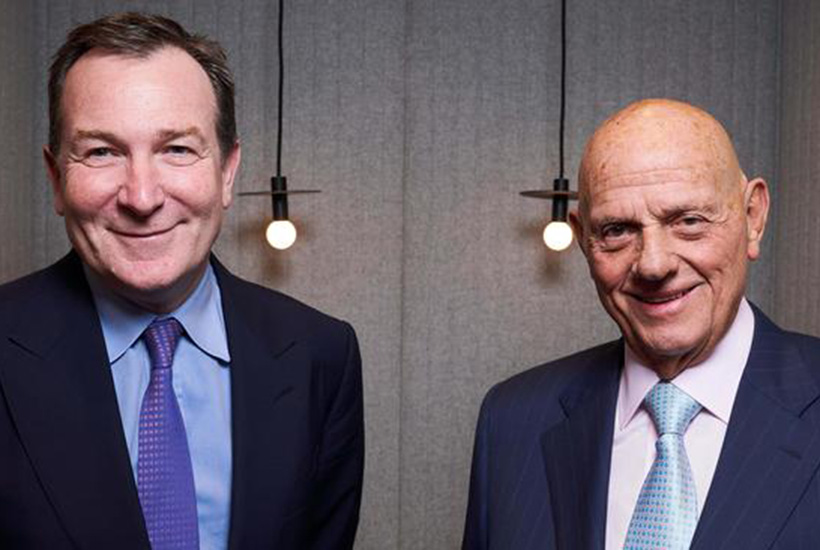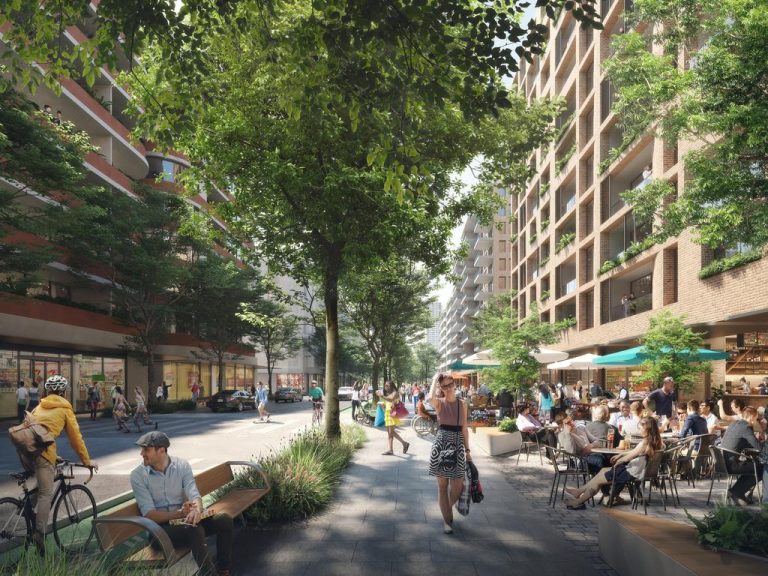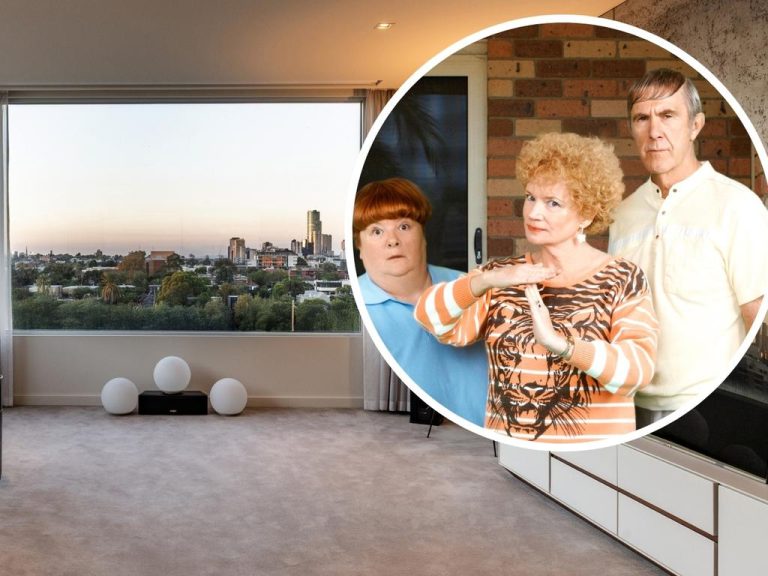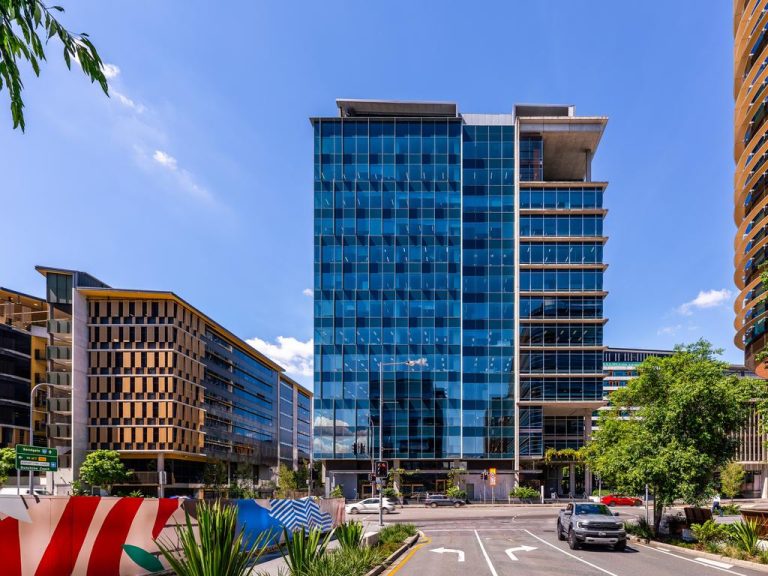Retailer to close Melbourne Smiggle store as coronavirus rent stoush intensifies

Solomon Lew’s Premier Investments has hit back at criticism of its hardline tactic of not paying rent when it closed stores during the coronavirus pandemic and for receiving the JobKeeper subsidy, and will close a store in a Melbourne mall co-owned by Salta Properties, which had called out the retail chain.
The move brought the conflict between major retailers and large landlords into public view with Premier saying it would also pull out of a deal to open another store in the Victoria Gardens centre as it claimed that its priority was maintaining jobs amid the pandemic.
Salta Properties managing director Sam Tarascio, a scion of the Melbourne-based billionaire property development family, brought the row to attention by posting over the weekend about Premier’s use of the JobKeeper government wages subsidy package.
Premier lifted its performance during the COVID-19 pandemic, partly on the back of a surge in online sales, according to its earnings update last Thursday.
Tarascio said that examples had emerged of businesses receiving government assistance and taking rent relief while improving their profits and on Tuesday stood by his statement that a wider shift to percentage rents would hurt the property industry.
But the reaction was swift with the store closure announced by Premier chief executive Mark McInnes, who argued that keeping jobs remained at the heart of the retailer’s use of government programs as it dealt with what he called “a once in a century” pandemic.
The retailer also has been under fire for plans to switch some leases to rent based on a percentage of turnover rent, which landlords warn will make developing shopping centres unviable.
McInnes said Premier was focused on keeping staff and accessing programs to ensure they were supported while shops were closed, whether by government regulations imposed recently in Melbourne or as the pandemic first broke out.
In a public display of its hardening attitudes, Premier will close the Smiggle store in the Richmond centre, which is co-owned by the listed landlord, Vicinity Centres. It will also pull back from a deal agreed to open a Peter Alexander store at the venue, noting it had agreed on a percentage based rental deal capped at 12 per cent.
McInnes pledged Smiggle staff would be redeployed in the Premier empire while presenting an impassioned defence of the company’s actions, saying they were driven by the need to retain jobs, and criticising the narrow focus of taken by landlords.
“What’s been lost is, is, yes we might have reopened in Australia and New Zealand since the pandemic but actually now we’re back in it,” he said.
McInnes said the “employment discussion” had been lost in debate about rents and denied Premier was seeking to “financially arbitrage” the situation. “The fact that I had to stand down 1500 people again, in the last two weeks, almost brings a tear to my eye.”
McInnes argued that this was the driver for Premier’s actions rather than short-term financial gain or a desire to switch longer-term dynamics in the industry as is widely feared among landlords. Major landlords including billionaire John Gandel, Shaun Bonett and Con Makris, as well as Salta Properties, have criticised Premier for disrupting the industry.
McInnes emphasised the company’s desire to do business with landlords that were supportive of the company’s brands and its approach to dealing with the coronavirus pandemic.
“We really only want to do business with landlords who want our much-loved brands in their centres and there’s plenty of landlords who want them,” he said.
McInnes also called out landlords that have denied striking turnover-based rental deals, saying they were being offered regularly. He added it was the height of hypocrisy to say that percentage rent deals were not a way forward for the industry.
“It’s not like percentage rent deals are not happening in the market; they’re happening all over the place,” he said. “Every landlord has a different view but for big landlords to sit there and say don’t do it, it’s simply not true.
“Vicinity have made lots of comments and they’ve offered up plenty of deals with percentage rents.”
But he declined to comment on the status of negotiations with landlords for the initial period in which Premier shops shut because of the outbreak of coronavirus, for which listed landlords also have given only limited data, although collection rates have been hampered by COVID-19.
The Premier boss dubbed the commentary by the Victoria Gardens co-owner as “poorly researched, ill-informed and full of self-interest” and indicated a souring with landlords who publicly criticised Premier without being committed partners.
Westfield owner the Scentre Group and Vicinity Centres, which reports on Wednesday, have also complained about Premier’s tough stance on rental payments.
In a sign that Premier’s rapidly growing online presence — which now accounts for about one-quarter worth of sales — could give it the upper hand, McInnes said if the chain had shops on holdover leases and a landlord did not want it, it would give notice, and earnings loss would be more than offset by online earnings growth.
McInnes noted last week’s trading update did not include declaration of a dividend and Premier had not commented on landlords and rejected the notion Premier was seeking a longer-term shift.
“We’re not looking to change an industry structure and we’re not looking to go against an ecosystem, we’re trying to deal with is a once-in-a-century global pandemic,” he said.
“We’re trying to come up with a mechanism that deals with a once-in-a-century global health crisis.
“For landlords to ignore the impact of the pandemic on a commercial relationship, to ignore the reality of what businesses is going through,” he said. “To bring this back to a lease is a lease is a lease is not facing the reality of a global once-in-a-century health crisis.”
Salta Properties said “in these difficult times” it believed businesses that could comply with their commercial arrangements ”should do so”.
“Salta Properties accepts that at the conclusion of a lease it is up to the landlord and tenant to agree commercial terms for renewal, if that is what both parties desire,” the company said in a statement. Once those commercial terms are agreed, both parties should comply with those terms.”
But Salta’s statement reaffirmed that rents based purely on a percentage of sales were not workable because the landlord had no say in the way the tenant ran their business. “The landlord should not be exposed to the tenant’s ability or inability to run their business in a profitable manner,” Salta said.
McInnes denied the company wanted to close stores, saying it only wanted rents to reflect the trading environment. But he said Premier didn’t need to do business where its much-loved brands weren’t wanted. “There are lots of landlords who want Smiggle and Peter Alexander — if they don’t want Smiggle and Peter Alexander, fine.”







